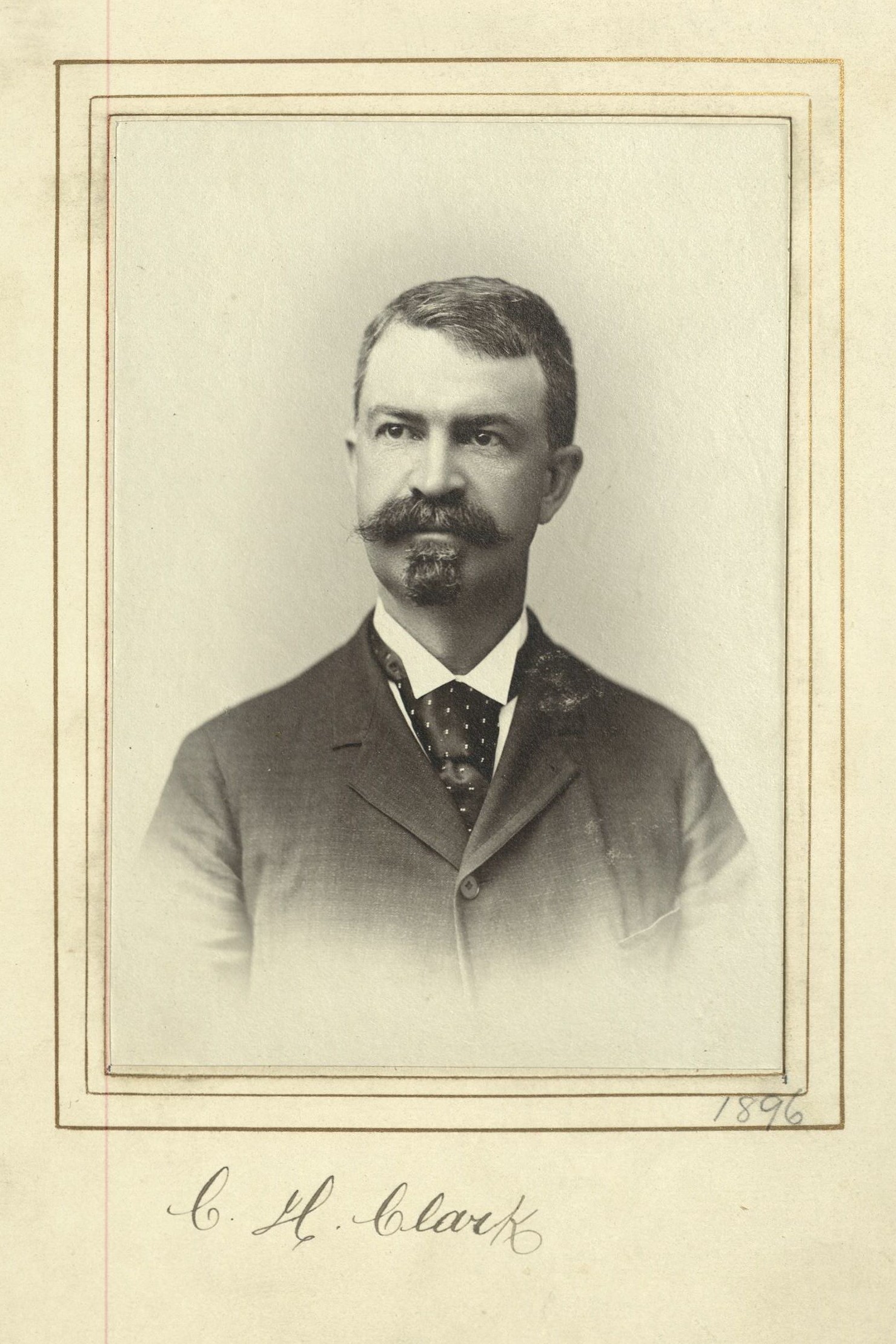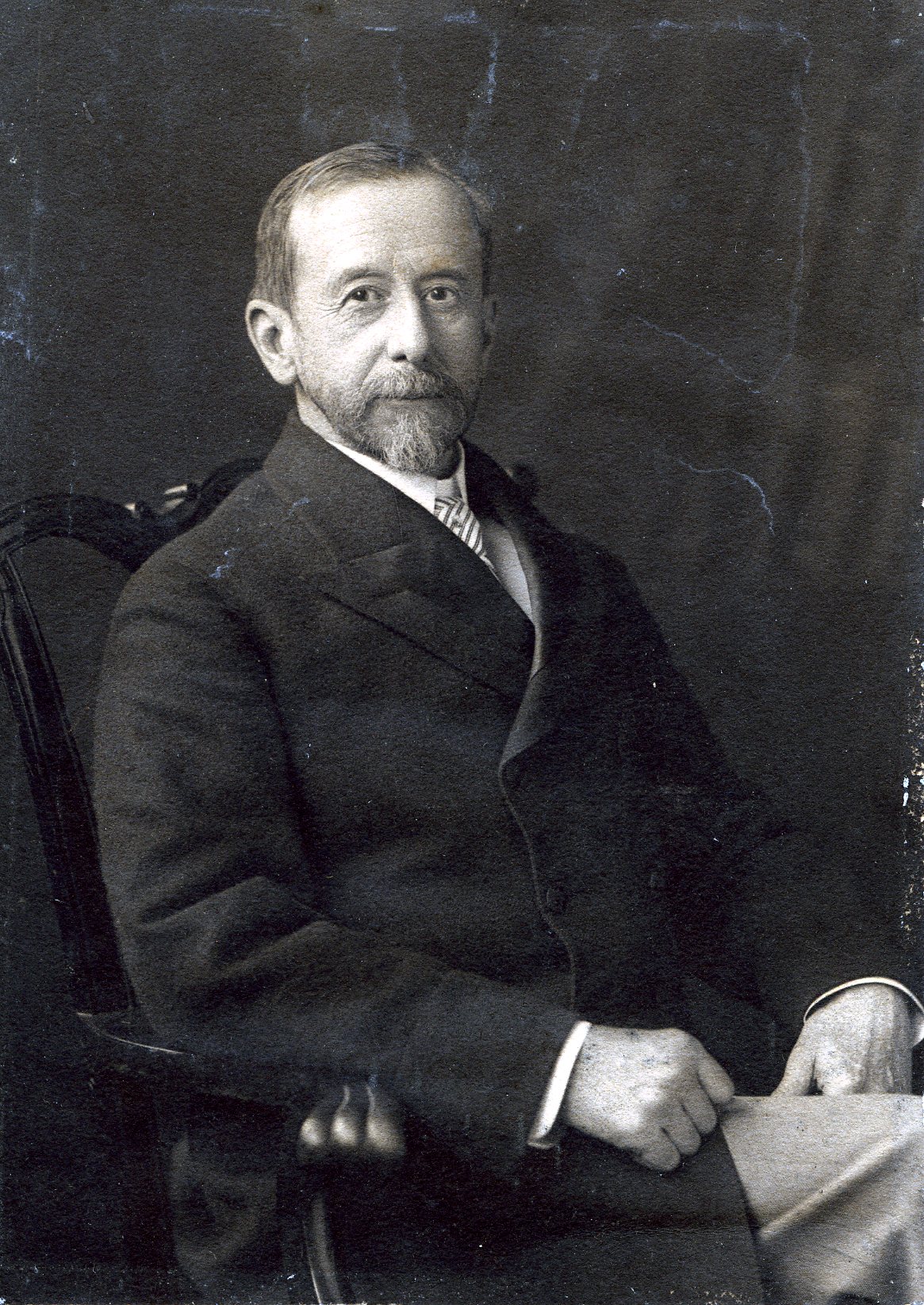Member Directory,
1847 - 1922
William Crary Brownell
Author
Centurion, 1888–1928
Montgomery Schuyler and E. Winchester Donald
New York (Manhattan), New York
Williamstown, Massachusetts
Age thirty-six
Brooklyn, New York

Archivist’s Notes
Second vice president of the Century Association, 1916–1922
Century Memorial
To those who regret what may seem to them decay in ideals of literary criticism, the writings and personality of William Crary Brownell were a happy reassurance. With the school of casual book-reviewing which allots its praise or censure in the manner of a news reporter or a theatrical first-nighter, he had as little sympathy as it would have attracted from the Saint Beauves or Lowells of another generation, whose criticism, like Brownell’s, was itself literature. Brownell set up for himself the standard that “criticism is an art” which “calls for a knowledge of life and for a philosophy of life.” To this exacting criterion he held unswervingly. His own critical writing would not be described as brilliant. Brownell’s style was direct and unadorned, but it resembled the conversation of a thoroughly cultivated man. Unlike many other critics of high repute, he did not pose as the arbiter of contemporary reputations. He was rarely partisan, never contentious. Macaulay’s joy in coming to grips with writers or writings whose methods invited knock-down blows was unknown to Brownell; indeed, the reason why he wrote so seldom on the “new-school” fiction and social propaganda of his later days probably was that he disliked them so heartily. He considered it better use of his time to add to public knowledge of writers of established reputation, past and present.
Of these his appraisal was distinctly judicial. His critical judgment was not misled by the fact that the writings of Carlyle, for instance, were “penetrated with the power of a prodigious personality.” Brownell finds Carlyle’s “intensity of emotion” a quality which “monopolizes and hampers quite as much as it stimulates his thought.” George Eliot’s “position as a classic is assured;” she certainly stands at the head of psychological novelists; but she is not an artist, and “of style in any large sense surely no great writer ever had so little.” Perhaps to the ordinary reader his most surprising judgment was his high appraisal of Fenimore Cooper, whose romance, hardly in line with the general view, Brownell considers to be distinguished by “its solid alliance with reality.” Nevertheless he frankly points out also that Cooper’s “narrative is prolix” and his characters “sometimes bores.” The nearest Brownell comes to unqualified praise is with Thackeray, whose Newcomes he places “incontestably at the head of the novel of manners.” The nearest he comes to outright depreciation is with Meredith, whose “world is not a real world,” who “is never absorbed even in his subject” but “keeps it at arm’s length and speculates copiously about it.” These were Brownell’s judgments of 1901; apparently he never changed them.
In the Century, Brownell found congenial atmosphere. The thoughtful presence, the kindly eyes, the deliberate speech, and the hopeful view of men and things that belied the sometimes grim expression of his features under the iron-gray beard, were for many years familiar in the reading-room and at the dining-table. During six years of the war and post-war period, the Century had the benefit of his careful judgment as first vice-president of the Club. What his literary counsel meant to the publishing house of which he was adviser, and to the authors whom he encouraged in their early efforts, was a side of his life of which the Century knew less. Mrs. Wharton has summed up feelingly the help he gave, recalling “in his spoken counsels the eager open-mindedness, combined with an unwavering perception of final values,” which pointed the way to real achievement.
Alexander Dana Noyes
1929 Century Association Yearbook
Related Members
Member Directory Home-
 Richard AldrichMusical Editor, New York TimesCenturion, 1904–1937
Richard AldrichMusical Editor, New York TimesCenturion, 1904–1937 -
 John B. ClarkProfessor of Political EconomyCenturion, 1896–1938
John B. ClarkProfessor of Political EconomyCenturion, 1896–1938 -
 Royal CortissozAuthorCenturion, 1920–1948
Royal CortissozAuthorCenturion, 1920–1948 -
 E. Winchester DonaldClergymanCenturion, 1886–1904
E. Winchester DonaldClergymanCenturion, 1886–1904 -
 Edwin Wilson MorseEditorCenturion, 1902–1924
Edwin Wilson MorseEditorCenturion, 1902–1924 -
 William Agnew PatonAuthorCenturion, 1898–1918
William Agnew PatonAuthorCenturion, 1898–1918 -
 Montgomery SchuylerJournalistCenturion, 1885–1914
Montgomery SchuylerJournalistCenturion, 1885–1914 -
 Francis H. StoddardProfessor, University of New YorkCenturion, 1895–1936
Francis H. StoddardProfessor, University of New YorkCenturion, 1895–1936


